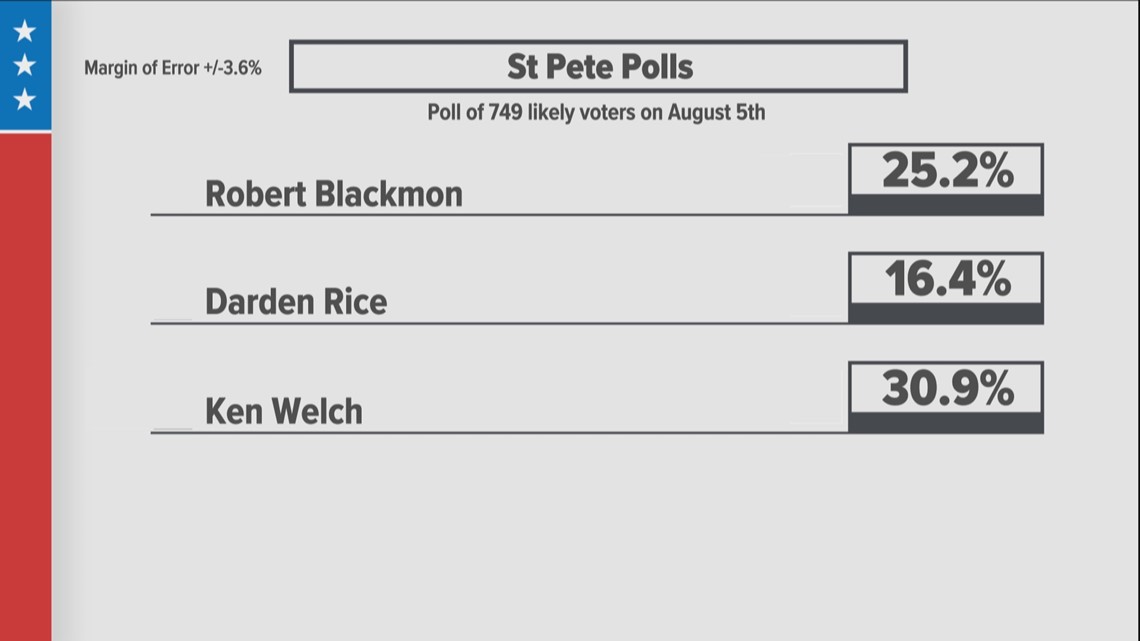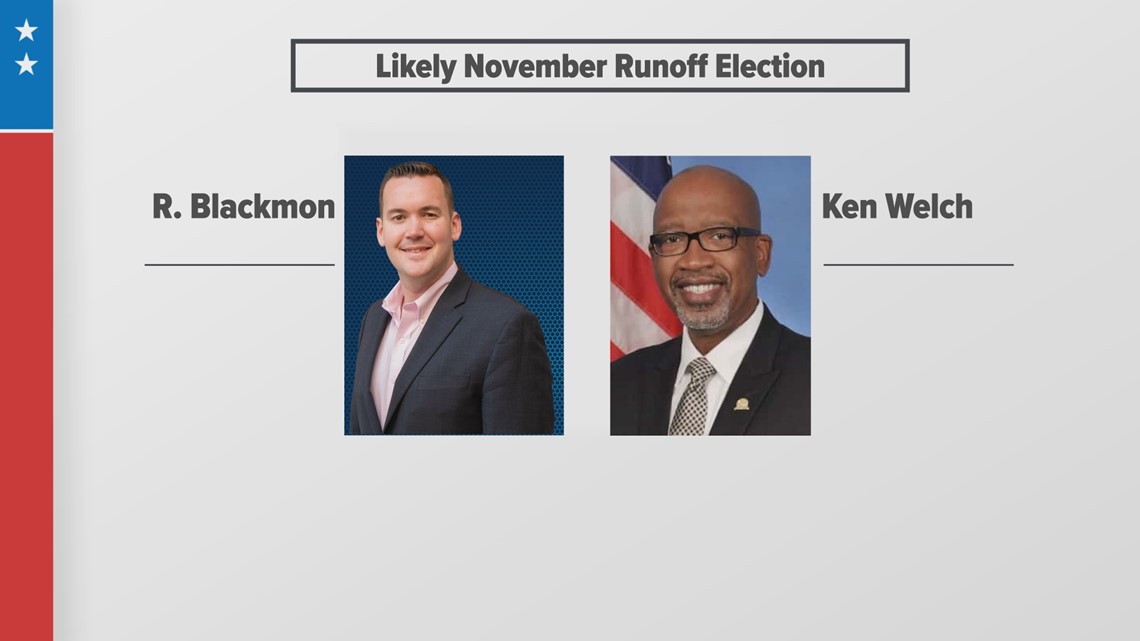Polling shows they’re most likely to be in a runoff election in November.
ST. PETERSBURG, Fla. — We’re just six days away from the St. Petersburg Primary, an election that could potentially lead to some major or even historic changes in the city.
There are nine candidates running, but three are considered the frontrunners according to recent polling. The group Saint Pete Polls asked 749 likely voters who they would vote for in the Aug. 24 primary.

Credit: WTSPThere are three frontrunners in the race according to recent polling.
Former Pinellas County Commissioner Ken Welch was the frontrunner with nearly 31 percent, followed by City Council member Robert Blackmon at 25 percent and trailing in third, Darden Rice at 16 percent.
If Welch is elected, he would be the city’s first Black mayor. If Rice wins, she would be the city’s first openly gay mayor
Political Analyst Lars Hafner says he doesn’t expect any of the three highly-qualified candidates to get the 50 percent needed to win outright, so he expects to see a runoff in November.
“Even though it is a non-partisan race in Saint Petersburg, it’s going to become very partisan just like the Baker-Kriseman race became. That’s why it’s going to be important if the democrat which would be Ken Welch vs Blackmon the Republican if Welch is going to win. Where Blackmon just has to consolidate a kind of homogenous group of people. Welch has got to get the voters out from the African American community, the LGBT community, other communities that will support him and all of those communities don’t always see eye to eye, so he’s got a bigger piece of the puzzle to put together in the long run. That’s what’s going to make the race very interesting,” Hafner said.

Credit: WTSPBlackmon and Welch are likely to be the two that move on to the November general election.
So far, there’s been 15 percent turnout with voters turning in their mail-in ballots. It’s too late to pop those in the mail to ensure it gets counted in time; so instead, if you still have one, you’ll want to drop it off at one of the three Pinellas election offices.
You can also expect more diversity on the ballot and where you’re voting. Florida’s population has grown since the last census, giving us another future congressional seat. That means we will have 28 total. Hafner says the changing population will be factored into redistricting. The newest Census also shows a large increase in the Hispanic population across the Tampa Bay area and fewer white people.















